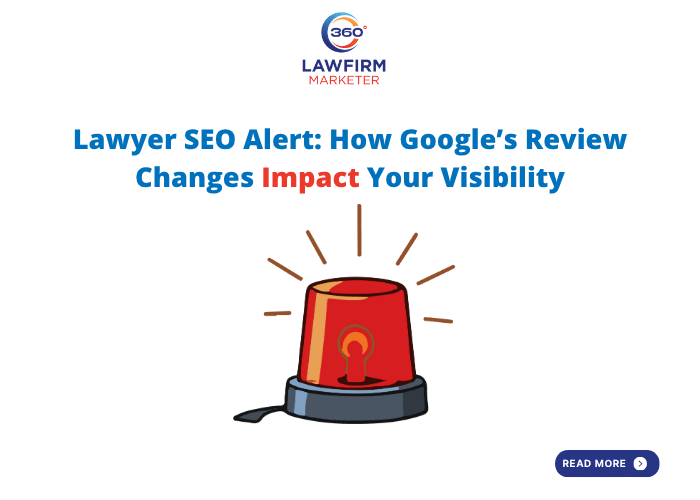
If you market a law firm, you already know this: reviews are your second homepage. They’re where a skeptical prospect turns when they’re deciding whether to call you or keep scrolling. That’s why every Google update that touches reviews and especially review rich snippets matters.
In this guide, we’ll break down what “more helpful” review snippets really means in Google’s eyes, the rules you need to respect (both Google’s and your bar’s), and the exact steps to implement, measure, and maintain review visibility the right way. The goal: more useful stars in the SERP, fewer compliance headaches, and measurable lift in qualified inquiries.
What Google Wants When It Says “More Helpful”
When Google talks about making review snippets “more helpful,” read it as more trustworthy, less spammy, and better matched to search intent. For legal, that translates to:
- Real client feedback surfaced from reputable sources, not cherrypicked testimonials hosted only on your domain.
- Accurate structured data that describes who is being reviewed (your firm, your attorneys, your services) and how (ratings, counts, dates).
- Context over vanity freshness, review diversity, and specific signals (responsiveness, communication, outcomes within ethical limits) matter more than a single inflated star average.
- Consistency across the web your Google Business Profile (GBP), major legal directories, and your website should tell the same story.
Bottom line: if your snippet helps a consumer genuinely evaluate your firm, you’re aligned with the update.
The Compliance Lens: Legal Is Different
Before you race to implement markup or ask for 100 new reviews this week, remember:
- State bar advertising rules apply. Be careful with incentives, results language (“won me $$”), and confidentiality. Encourage clients to speak to experience and service (communication, empathy, clarity) rather than outcomes.
- Disclosures and moderation. Don’t hide negative feedback. Avoid gating (only asking satisfied clients). If you collect firstparty reviews, be transparent about your process.
- Attorney vs. Firm. If you collect reviews for individual lawyers, label them as such. Misattribution can be both misleading and a compliance risk.
This is one of the biggest law firms challenges today balancing ethical compliance with the need for strong online visibility.
Where Review Snippets Can Show Up for Lawyers
- Your website’s organic result via structured data.
- Your Google Business Profile (Local Pack/Map Pack), which can indirectly influence trust and clicks to your site.
- Legal directories (Avvo, Justia, FindLaw, Yelp, etc.) that often capture pageone visibility and may show stars.
A robust strategy covers all three. If your site has perfect schema but your GBP is empty or vice versa you’re leaving results on the table.
A “Helpful Reviews” Playbook for Law Firms
1) Map Your Review Ecosystem
- Primary: Google Business Profile
- Secondary: Highvisibility legal directories in your market (e.g., Avvo, Justia, Lawyers.com, Yelp; varies by practice and city)
- Owned: Your website’s practice area pages and attorney bios with firstparty reviews
Identify where prospects actually see you when they search “practice area + city” and prioritize those platforms.
2) Build an Ethical Review Workflow
- Ask at the right moment: after a milestone (case closure, favorable procedural result, or consult that delivered clarity).
- Make it easy: send a short link to GBP review form; include options for those who prefer anonymity or private feedback.
- Never incentivize with value (discounts, gifts). A sincere ask + simple instructions wins.
Make Snippets Useful (Not Just Shiny)
“Helpful” isn’t just star icons. Give prospects the context they actually need:
- Themes that matter to legal buyers: responsiveness, clarity, empathy, billing transparency, courtroom preparedness, negotiation strength (staying within ethical limits).
- Recency: highlight reviews from the last 3–6 months.
- Diversity: showcase reviews across different practice areas and attorney teams.
- Response cadence: reply to reviews especially negatives with professional, nonconfidential language. Prospects read how you handle criticism.
As search evolves, AI search optimization will play a role in how these snippets are interpreted and ranked. Law firms that combine structured data with AI-driven content strategies will stay ahead.
Maintenance: The Quiet Work That Wins
- Quarterly audit: Validate review snippets; update counts and averages.
- Monthly review cadence: 4–8 new GBP reviews per active office/practice is a healthy, sustainable target.
- Profile hygiene: Keep GBP categories, services, hours, and attributes current.
- Staff training: Everyone who touches clients should know when and how to request reviews ethically.
Pair this with PPC campaigns targeting high-intent keywords, and you create a dual funnel: paid ads for immediate leads and organic snippets for long-term trust.
The Takeaway
Google’s push to make lawyer review rich snippets “more helpful” isn’t a trick to game it’s a nudge toward authenticity. If your reviews are real, recent, and relevant; your markup is clean; and your client experience earns praise without nudging clients into compliance gray zones, you’ll win both visibility and trust.
Start with your Google Business Profile, publish firstparty reviews on highintent pages, and measure the impact in CTR and conversions, not just stars. That’s how you turn little gold icons into real consultations.




